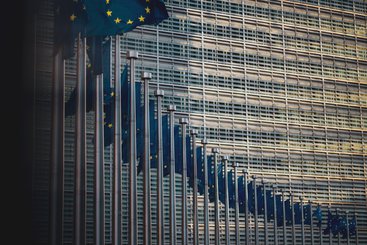Today the UK finally leaves the EU. After nearly four years of political mayhem, the lead up to Brexit day is somewhat of a British understated affair. There is a new 50p coin sure, but no Big Ben bong – or big bang for that matter. After the storm, all seems business as usual today.
But make no mistake, big changes are ahead. The implications of the UK leaving the EU are significant, not least on Britain’s leadership role – and power – as a global player which risks being undermined by the inevitable diminished influence it will have in Brussels.
There is no doubt that the EU and its member states will continue to be a major player on the global stage: an influential and powerful force in multilateral institutions and processes, a norm setter for international policy and collectively the world’s largest aid donor.
How will the UK retain its influence?
In practice, we can expect a much diminished capacity for the UK government to play any formal role in EU policy-making. As of Monday, UK officials will no longer be ‘inside the room’ in Brussels or at the negotiating tables where decisions will be made. Similarly, there will be no British MEP sitting in the EU Parliament. This is not a sudden change, as the ability of key departments like the UK Department for International Development (DFID) and Foreign Office (FCO) to shape EU policy-making has been steadily dwindling – along with their resources and bandwidth to do so.
This presents challenges but also opportunities for the large and vibrant global community based in the UK. With the government unable to exercise direct influence, there may well be opportunities for a range of non-state actors, from think tanks to NGOs and businesses. They can play a more influential role in Brussels and other European capitals where the know-how and experience of ‘Global Britain’ are still very much in demand. However, this will require innovative ways of working, collaborating and engaging, across sectors and countries.
Introducing ODI Europe
Clearly, there is work to be done, and this is why at ODI we will very much remain engaged in Europe, stepping up our activities and making Europe a strategic priority during our 60th anniversary year and as we enter in 2020 the Decade of Delivery for the Sustainable Development Goals.
Up to now, our base in London has served us well as a global think tank. London historically is a worldwide hub for major development organisations, global debates and thought leadership. And our international influence has been enhanced by our connections with, understanding of and influence on the UK government. However, we are also clear that to remain influential and credible globally, we must begin with continued and renewed cooperation and engagement with our neighbours in Europe.
For this reason, as part of our strategy to become a more global and diverse organisation, we are taking three concrete steps to boost our commitment and actions in and on Europe:
1. A new initiative on the Mediterranean region
Our policy and research work will focus not only on the future of EU development cooperation, but increasingly also on the geopolitical dynamics at play in Europe and on its borders, particularly in the Mediterranean region. We are working towards a new ‘ODI MED’ Initiative focusing on the countries north, south and east of its shores and key regional political and economic priorities, from migration to climate change, conflict, youth and jobs. This mirrors the new European Commission’s ambition to be a ‘geopolitical commission’, including building a true partnership with neighbouring regions, like Africa.
2. Engaging with EU institutions
We will also step up our engagement with the EU institutions and our presence in Brussels through our partners and associates, such as the European Think Tanks Group. As the von der Leyen Commission gets underway with an ambitious policy agenda on climate, digital transformation and a renewed partnership with Africa – we have co-produced an Agenda for Europe which provides the new Commission with a roadmap for Europe’s place in the world.
3. Stronger partnerships with EU member states and neighbouring countries
Finally, we are working to forge new, stronger and more strategic partnerships with governments and other key stakeholders across European member states and in neighbouring countries. These will build and expand on ODI’s key areas of expertise of particular relevance in Europe, such as migration, climate, digitalisation and the future of work.
We will also continue to work with the British government and partners to ensure that the UK maintains a close and productive relationship with the EU in critical areas such as trade, development cooperation and more.
We want to make sure that our voice and ideas can be heard and used beyond UK traditional partners and allies like the Commonwealth, South Asia or English speaking sub-Saharan Africa. We want to reach and engage countries and regions where Global Britain may have less traction, from North Africa to the Sahel, the Middle East and Eastern Europe. To achieve this, we will increasingly speak and write in languages other than English, as a concrete step to build new connections and break down some walls.
On this sad day as the UK leaves the EU, we decide to renew our commitment to being a global and European think tank, and to continue to contribute, more and better, to the future of the European project. We are very much IN.



